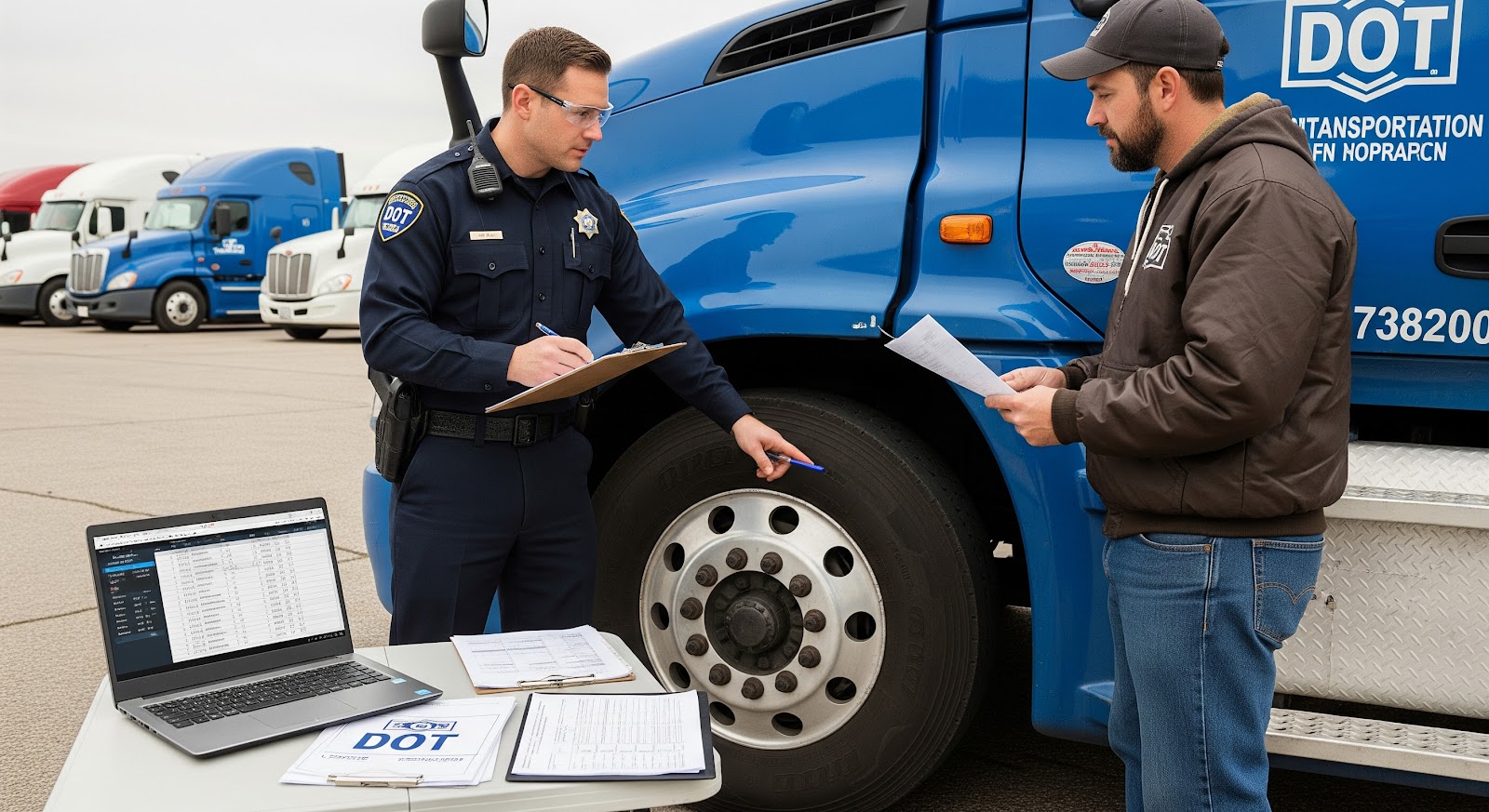Traditionally, fleet management focused on optimizing routes, monitoring vehicle maintenance, and ensuring regulatory compliance. However, with the rise of advanced telematics, real-time tracking, and data-driven fleet management solutions, the role of the fleet manager has become significantly more complex and multifaceted.
Today’s fleet management manager is expected to do more than manage vehicles; they must lead people, make quick decisions under pressure, communicate across departments, and adapt to rapidly changing circumstances.
This shift has made soft skills just as critical as technical expertise for those overseeing fleets. While technology can streamline processes, it’s the human ability to lead, motivate, and solve problems that ultimately drives effective fleet management.
Why Soft Skills Are Crucial in Fleet Management
Yet, even the most advanced systems still rely on drivers, dispatchers, technicians and managers to execute daily operations, make judgment calls, and adapt to changing conditions. This is where soft skills play a critical role in elevating performance and ensuring sustainable success.
The Human Factor in Fleet Operations
While hardware and software power the logistics behind fleet management, it’s people who interpret the data, respond to emergencies, and collaborate to meet business goals. Every delayed delivery, equipment issue, or miscommunication affects real lives and bottom lines. Fleet managers are at the center of this web, making human interaction a constant part of their role.
Whether it’s coaching drivers on safety practices or managing conflict between departments, the ability to lead with empathy and clarity is just as important as knowing how to operate a fleet tracking dashboard. Without strong interpersonal skills, even the best-laid plans can fall apart due to poor morale, miscommunication, or lack of accountability.
Complementing Technology with Communication and Leadership
Modern fleet management solutions have transformed how businesses monitor vehicle health, optimize fuel usage, and track productivity. However, these tools don’t function in isolation. Fleet managers must know how to communicate insights from fleet management analysis in a way that resonates with team members who may not be data-driven by nature.
Soft skills such as communication, persuasion, and active listening help bridge the gap between data and action. For example, when telematics software indicates a pattern of harsh braking, it takes emotional intelligence and coaching ability to address this with drivers in a constructive way that encourages improvement rather than defensiveness.
Enhancing Team Dynamics and Compliance
Fleet operations depend on multiple departments working together, often under tight deadlines. A breakdown in collaboration can result in missed deliveries, regulatory penalties, or even safety risks. Soft skills like teamwork, conflict resolution, and adaptability strengthen interdepartmental communication and improve overall coordination.
They’re also vital for maintaining compliance. Regulatory changes and documentation requirements can overwhelm teams, especially when not communicated clearly. A fleet manager with strong communication skills can ensure everyone stays informed, understands their role, and follows proper procedures, reducing the risk of violations or costly delays.
Impact on Driver Satisfaction and Customer Experience
The way a fleet manager interacts with drivers and staff directly influences retention and performance. Drivers who feel heard and respected are more likely to stay with a company, follow policies, and perform their duties with care. This directly affects customer satisfaction, as happy and engaged employees are more likely to represent the brand positively.
A well-rounded fleet management manager doesn’t just track vehicles; they cultivate a workplace culture where accountability, respect, and shared goals thrive. This people-first approach results in more responsive service, better safety records, and a stronger reputation for reliability.
Leadership and Decision-Making in Fleet Management Analysis
Fleet managers today are not only tasked with overseeing vehicles and logistics, but they are also leaders responsible for guiding teams, interpreting operational data, and making timely decisions that keep fleets safe, compliant, and profitable. Strong leadership paired with sound decision-making skills enables fleet managers to navigate uncertainty, motivate employees, and respond effectively to challenges on the road and in the office.
Translating Data Into Strategic Action
Modern fleet operations rely heavily on fleet management analysis, which involves interpreting data from telematics systems, maintenance reports, fuel usage logs, driver behavior metrics, and more. However, data by itself does not create value. It takes leadership to extract meaningful insights and transform them into strategic actions that improve performance.
Fleet managers must:
- Prioritize what data matters most for specific objectives (e.g., safety, efficiency, compliance)
- Communicate findings in a way that resonates with non-technical team members
- Set clear performance benchmarks and goals based on historical trends
- Balance short-term fixes with long-term operational improvements
For example, a spike in idling time may point to inefficiencies in routing or driver habits. A strong leader uses this insight to coach drivers, adjust dispatch strategies, or invest in idle-reduction tools rather than simply issuing warnings or relying on blanket policies.
Leading Under Pressure: Crises and Operational Setbacks
Fleet management often involves responding to high-stakes, time-sensitive situations such as vehicle breakdowns, traffic incidents, weather delays, or compliance violations. In these moments, leadership is tested, and decisions must be made quickly and confidently.
Effective fleet leaders remain calm under pressure and:
- Assess the situation using available data and team input
- Delegate responsibilities clearly to avoid confusion
- Communicate updates promptly to all relevant parties
- Weigh risks and choose the best course of action with minimal disruption
The ability to stay composed and lead decisively during a crisis not only keeps operations moving but also earns trust from drivers, dispatchers, and upper management. A crisis may be unavoidable, but poor leadership can turn a manageable issue into a costly disaster.
Balancing Decisiveness with Flexibility
Being decisive is critical, but so is knowing when to adapt. Fleet environments are dynamic, and what works today might not be ideal tomorrow. Strong decision-makers balance logic with intuition, using data as a foundation while staying open to feedback and changing circumstances.
Some practical decision-making habits include:
- Reviewing past outcomes to inform future actions
- Encouraging team input when appropriate
- Avoiding over-analysis when quick action is needed
- Evaluating the human impact of operational decisions
For instance, reducing driver hours to cut costs might appear efficient on paper, but could lead to burnout or increased turnover. A good leader recognizes this and seeks alternatives that protect both the business and the workforce.
Leadership as a Competitive Advantage
In an industry where vehicles and systems may be similar across companies, leadership becomes a key differentiator. Fleet managers who lead with confidence, clarity, and empathy create stronger teams, improve operational reliability, and drive long-term success. Their ability to harness the power of fleet management analysis and pair it with people-first leadership makes them indispensable in today’s competitive logistics landscape.
Emotional Intelligence and the Fleet Management Manager
Technical systems and data play a significant role in fleet performance, but it is emotional intelligence that determines how well a manager can lead people through challenges, transitions, and day-to-day interactions. Emotional intelligence (EQ) is the ability to recognize, understand, and manage one’s own emotions and those of others. In a demanding and fast-moving industry like fleet management, this skill is essential for managing stress, resolving interpersonal issues, and fostering a motivated, resilient workforce.
Managing Stress, Morale, and Interpersonal Dynamics
Fleet managers often operate in high-pressure environments, where deadlines are tight, drivers are dispersed, and issues can arise without warning. Maintaining personal composure while also supporting team morale requires a strong sense of emotional control and awareness.
A manager with high emotional intelligence can:
- Recognize early signs of burnout or stress among drivers
- Respond to tension with calm and empathy, rather than frustration
- Maintain a positive tone, even during peak operational periods
- Encourage open dialogue when issues surface
When managers respond with emotional awareness instead of reactivity, it sets a professional tone and encourages others to follow suit. This reduces workplace conflict and keeps the team focused during challenging times.
The Role of Empathy in Driver Retention and Satisfaction
Driver shortages and high turnover continue to challenge the transportation industry. While pay and route stability matter, many drivers leave because they feel unappreciated or unheard. Empathy, understanding, and acknowledging what others are experiencing are among the most powerful tools a fleet management manager can use to improve retention and satisfaction.
Empathetic leaders:
- Take time to listen to drivers’ concerns about schedules, safety, or work-life balance
- Follow up on feedback with visible actions or adjustments
- Show appreciation for drivers’ efforts and milestones
- Consider the human impact of business decisions
When drivers feel that their experiences and concerns are valued, they are more likely to remain loyal, perform at a higher level, and act as ambassadors for the company’s culture and brand. In this way, empathy supports both operations and long-term staffing success.
Adapting Management Style to Different Personalities
Every team is made up of individuals with unique personalities, communication styles, and motivations. What motivates one driver might frustrate another. Emotional intelligence helps fleet managers tailor their leadership approach to suit different team members, rather than relying on a one-size-fits-all method.
Adaptable managers are able to:
- Identify different personality types and work preferences
- Adjust feedback methods (e.g., direct vs. diplomatic) to suit the individual
- Balance firmness with flexibility when enforcing policies
- Create space for both introverted and outspoken team members to thrive
This adaptability leads to more effective coaching, stronger relationships, and better overall team performance. When employees feel understood, they are more likely to engage, cooperate, and take ownership of their responsibilities.
Emotional Intelligence as a Day-to-Day Management Skill
Unlike a training certification or technical tool, emotional intelligence is not a one-time achievement. It is practiced daily on phone calls, in meetings, during debriefs, and even in casual conversations with team members.
Fleet managers who invest in developing their emotional intelligence find it easier to:
- De-escalate tense interactions
- Build trust across departments
- Communicate transparently about challenges
- Promote a culture of accountability without fear
By prioritizing emotional intelligence, fleet managers not only improve individual relationships but also strengthen the organization’s ability to handle stress, change, and growth.
Soft Skills and the Adoption of Fleet Management Solutions
Fleet management technology continues to evolve at a rapid pace, offering businesses powerful tools for monitoring vehicles, tracking performance, improving safety, and ensuring compliance. Yet, no matter how advanced a system may be, its effectiveness depends on the people who use it. That is why soft skills are essential for successful adoption and long-term integration of any fleet management solution.
Fleet managers must do more than implement new systems; they must guide their teams through change, gain buy-in, and ensure that tools are used to their full potential. This requires strong communication, empathy, patience, and leadership.
How Strong Soft Skills Drive Tech Adoption and Team Buy-In
Introducing new technology into any workplace can lead to resistance. Drivers, dispatchers, and staff may be hesitant to change habits, skeptical of monitoring systems, or unsure about how the changes will affect their roles.
Fleet managers who possess the right soft skills can ease this transition by:
- Communicating the purpose and benefits of the solution clearly
- Addressing employee concerns without judgment
- Encouraging feedback and adapting rollout plans accordingly
- Motivating the team to see the solution as a support system, not a surveillance tool
For example, when rolling out a new GPS-based telematics platform, a skilled manager does not simply issue a memo and expect compliance. They take the time to host walkthroughs, answer questions, and highlight how the technology will make routes safer and reduce stress for drivers. That kind of thoughtful leadership ensures a smoother transition and stronger user engagement.
Bridging the Gap Between Systems and People
Technology is only as useful as the behavior it supports. Fleet management solutions generate valuable data on fuel use, driver behavior, maintenance alerts, and more, but people must interpret and apply that data in practical ways.
This is where the fleet manager becomes a bridge between systems and people. To be effective in this role, they need:
- The ability to translate complex data into clear, actionable insights
- Emotional intelligence to deliver feedback constructively
- Persuasive communication to drive behavior change
- Patience to work through the learning curve of new tools
For instance, if the data reveals consistent speeding by a group of drivers, a technically minded manager may see only a policy violation. A manager with well-developed soft skills, however, will explore the context, speak with the drivers, and work collaboratively on a solution that improves safety without creating resentment.
This human-centered approach ensures that the tools support better outcomes, rather than creating friction within the team.
Communication and Training Strategies for Successful Onboarding
Adopting new fleet technology is not a one-time event. It is a process that requires consistent communication and effective training. Fleet managers play a central role in onboarding both the systems and the people who will use them.
Here are key strategies that rely on soft skills for successful onboarding:
1. Set Expectations Early
Before rollout, explain what the technology is, why it is being introduced, and how it will help both the business and the employees. Transparency builds trust and reduces resistance.
2. Tailor the Training Approach
Recognize that people learn differently. Some may prefer visual demonstrations, while others need step-by-step guides or one-on-one support. A flexible, empathetic training approach ensures no one is left behind.
3. Foster Open Dialogue
Create a feedback loop during onboarding. Encourage team members to share challenges, ask questions, and suggest improvements. This not only improves adoption but also makes employees feel respected and involved.
4. Reinforce and Recognize
After implementation, continue to reinforce usage through ongoing coaching and check-ins. Publicly recognize individuals or teams who are embracing the change and using the system effectively. Positive reinforcement can go a long way toward building momentum.
5. Lead by Example
If a manager is visibly engaged with the system, logging in regularly, referencing data in meetings, and using the tools as intended, the rest of the team is more likely to follow.
Soft skills transform the onboarding process from a tech upgrade into a culture shift, where people feel empowered, informed, and involved. In the long run, this not only improves the performance of the fleet management solution but also strengthens team cohesion and trust in leadership.
Fleet leaders are encouraged to assess their own soft skills regularly and seek opportunities to develop them through training, mentorship, and intentional practice. Building these competencies not only improves performance but also strengthens the workplace culture, making it more resilient, responsive, and successful over time.
Ready to support your fleet management journey with reliable tools and services? Explore how ExpressTruckTax can simplify your compliance and e-filing needs today.



